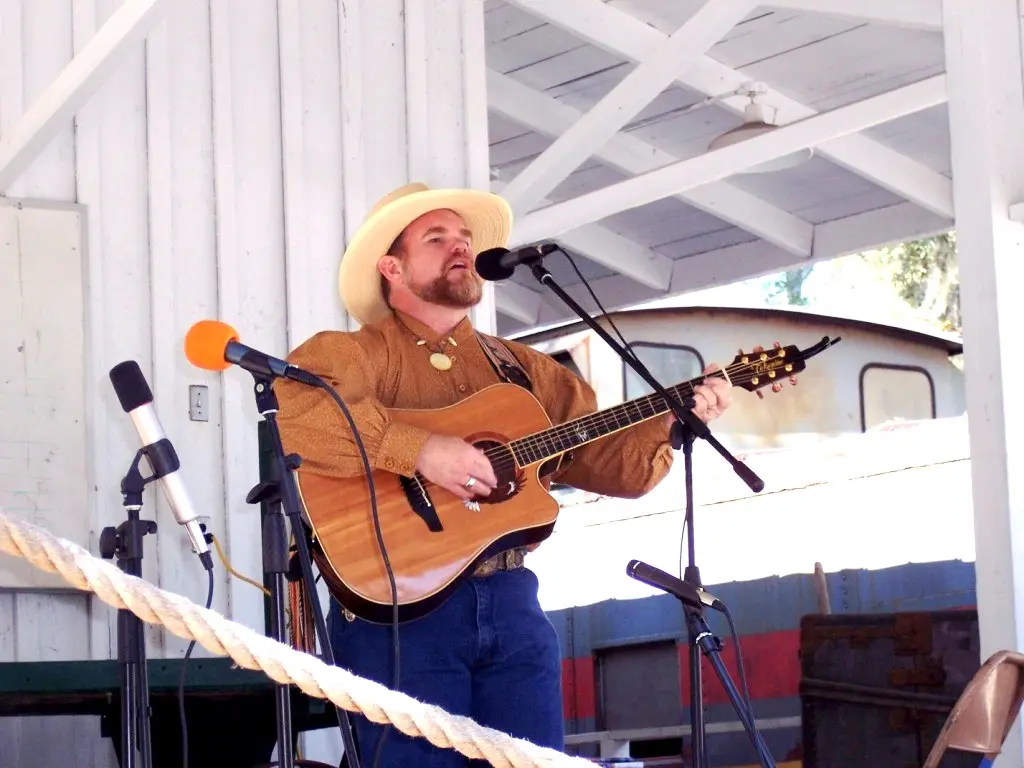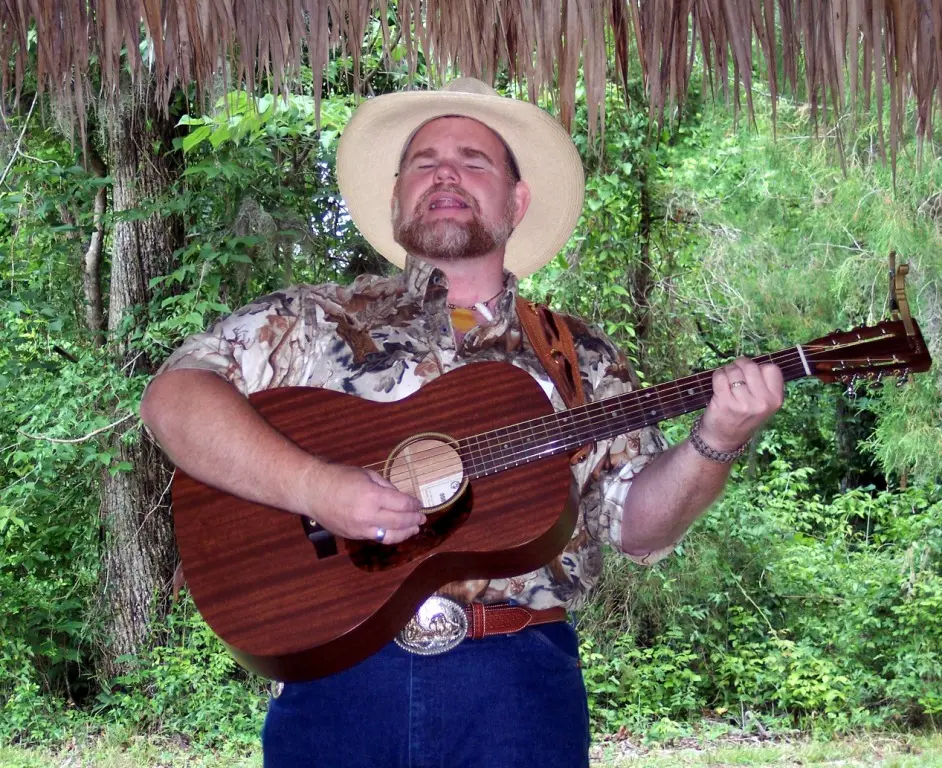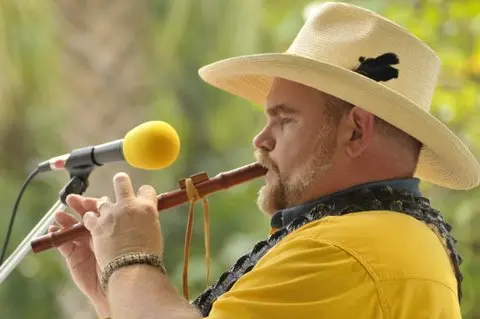The clear, strong, almost operatic singing of Benjamin Dehart can be heard accompanied by his skillful acoustic guitar playing at annual events such as the Florida Folk Festival in White Springs, the Fall Pioneer Jamboree in Barberville, Patrick Smith Day in Holopaw, the Cowboy Heritage Festival in Kissimmee, and the Will McLean Florida Folk Festival in Dade City.
Dehart, known throughout Florida and beyond as “The Cracker Tenor,” sings original songs inspired by Florida history, Seminole life, cowboy culture, and a longing for a simpler time when the natural Florida was less encroached upon by urban sprawl.
“I’m a native Floridian, I’m a second generation Floridian,” says Dehart. “If you’re born here and have some history, you’re pretty much a Cracker. I’m a tenor singer, so it was pretty easy to put the moniker together and come up with that name. I’m getting to be recognized more as ‘The Cracker Tenor’ than by my real name.”
As a boy growing up in the small farming community of Oxford, Florida, Dehart played autoharp and sang bluegrass music with his two brothers at local events. Today, Dehart plays guitar and Native American flutes, and sings with a lyrical voice.
Dehart has recorded four CDs of his music, available on his web site at thecrackertenor.com. His second CD, “Takin’ Another Crack At It,” contains the introspective, autobiographical song “All I Really Ever Wanted to be Was a Cowboy.”
“I was raised in a very rural and small town in Florida, and I had the opportunity to work as a Cracker,” says Dehart. “I worked with cattle. My grandfather was a cowman and a farmer, and I worked for a number of the cattle people in the area. I’ve always just been enamored and in love with the lifestyle of the cowboy and the cracker cow hunters of Florida.”
That love of cowboy culture comes through vividly in Dehart’s music. He sings about how life’s obligations interfered with his dream of spending the rest of his life as a Florida cowman.
“The responsible side of me made me not stay with that vocation, as much as I wanted to,” says Dehart. “I moved away from my little rural hometown and moved to a bigger city to start working for a big corporation, but my heart was always still in the saddle, so to speak. You do what you have to do to make a living, but that’s not necessarily where your heart is, and your heart will sing out.”
Another song that is very personal to Dehart is “Papa Can You Hear,” the story of his grandfather’s request to have a bagpiper play “Amazing Grace” at his funeral.
“My grandfather moved to the Okeechobee area and settled there,” says Dehart. “He was a unique man and a unique individual. He was an alligator hunter and a fisherman and a woodsman. He spent a lot of time in the Everglades. He was also, in the other part of his life, a Primitive Baptist preacher. He was a very eclectic man.”
Many of Dehart’s songs on the album “Another Side of Me” focus on the indigenous people of Florida. Some of the songs in that collection are instrumentals, featuring Dehart playing Native American flute.
“There’s more history than just the Seminole Indians,” says Dehart. “They have a wondrous culture and they have a lot of history themselves, but there’s more to do with Florida’s indigenous people that goes back thousands of years, and a lot of people don’t know that.”
The Cracker Tenor’s primary focus is on Florida’s rich history of cowboy culture and the people who are keeping that tradition alive today. Dehart hopes that his music will help preserve the stories of Florida’s cattle families.
“A lot of people don’t realize that the cattle industry started in Florida,” says Dehart. “The symbolism of the cowboy is something that will never die. I’m fully convinced that several hundred years from now, even if cow culture itself died out, someone could dig up a spur or a saddle or a bit, and instantly they would recognize what it was and where it came from. I think the iconic image of the cowboy is here to stay.”


